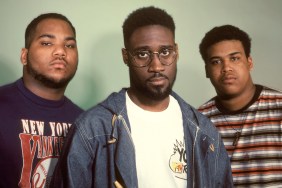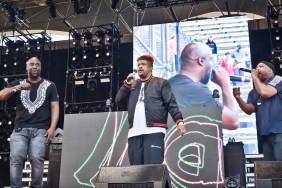When a band have been around for almost thirty years, theoretically it becomes relatively easy to identify the genre that their music falls into. However, meet Yo La Tengo: they don’t make it easy.
One could definitely label them with that gaping void of a genre we call ‘alternative rock’, but that would be lazy. Taking each Yo La Tengo album as it comes, a more accurate label would perhaps be ‘alternative-minimalist-folk-ambient-indie-ska-art pop-rock’.
Throughout their extensive discography, the norm is that each record bounces from genre to genre, creating more of a pile of songs, as opposed to a cohesive, flowing record. It’s not something the band will have set out to do, it’s just what happens when you get musicians in a room, all of whom have a wide array of musical influences.
On Fade, we get the most consistent collection of songs that the band have released. From the opening track, Ohm, we’re greeted by a pedalled, bluesy riff, with frontman Ira Kaplan revealing to us in a rather nonchalant manner that ‘sometimes the bad guys go out on top’. In a world of Simon Cowell and Rihanna, we’ve had to come to grips with this.
Around the two-minute mark, the track becomes more layered with the addition of droning synthesisers as the band vamps on the riff for another three or four minutes until it eventually fades out and into the next track, Is That Enough. Another guitar-driven piece of blues rock, it is supplemented with additional string sections that really breathe some life into the track. It starts to feel reminiscent of both Nick Drakes’ masterpiece Bryter Layter and a lot of the work released by Steely Dan.
Well You Better, another highlight of the record, feels a little The Flaming Lips-esque in its understated melodies, supported by an unyielding rhythm section.
Whilst guitars are present on every track, at times it feels as though an electronic influence rings through most distinctly. Stupid Things feels like Nick Drake’s Hazy Jane I with synths, whereas Two Trains is a down-tempo moment with roots in both folk and art-pop.
The acoustic moments on this record are some of the most memorable, particularly on I’ll Be Around, which features seldom more than a guitar and some synths (sensing a pattern yet?).
Culminating in a real banger of a track, Fade finishes with folk-rock tune Before We Run, which, over its six minutes, features everything we’ve had given to us on the record – droaning synthesisers, soaring string and brass lines, and a dependable rock base backing it all.
After 30 years in the business, no one is going to ask Yo La Tengo to change their style. They solidified it long ago. But when such an eclectic record is one of the most consistent efforts they’ve ever released, it speaks miles for the rest of their discography.












